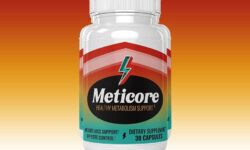What Is The Difference Diet Coke Vs Coke Zero, Ingredients ⏬👇
What Is The Difference Diet Coke Vs Coke Zero
What Is The Difference Diet Coke Vs Coke Zero are two popular carbonated beverages that offer sugar-free alternatives to traditional Coca-Cola. While they may seem similar at first glance, there are key differences between the two that go beyond just taste. In this article, we’ll explore the distinctions between Diet Coke and Coke Zero, including their ingredients, flavor profiles, and target demographics, to help you make an informed choice the next time you reach for a sugar-free soda.
Diet Coke Ingredients
Diet Coke’s ingredients typically include:
- Carbonated Water: The primary ingredient, providing the beverage’s fizz.
- Caramel Color: This gives Diet Coke its characteristic dark color.
- Aspartame: A high-intensity artificial sweetener that imparts sweetness to the drink without adding calories.
- Phosphoric Acid: This ingredient provides acidity and enhances the beverage’s flavor.
- Potassium Benzoate: A preservative that helps extend the shelf life of the product.
- Natural Flavors: These are added to create the unique taste of Diet Coke, although the specific components of the “natural flavors” are proprietary information.
- Citric Acid: Another acid used for flavor and preservation.
- Caffeine: Diet Coke contains caffeine, providing a mild stimulant effect.
It’s important to note that ingredient formulations may vary slightly by region or over time, so it’s always a good idea to check the product label for the most up-to-date information. Additionally, some individuals may have sensitivities or allergies to certain artificial sweeteners, so it’s essential to be aware of the ingredients in Diet Coke if you have specific dietary concerns.
Coke Zero Ingredients
Coca-Cola Zero Sugar, often known as Coke Zero, typically contains the following ingredients:
- Carbonated Water: The primary ingredient, providing carbonation to the beverage.
- Caramel Color: This ingredient is used to give Coke Zero its dark color.
- Phosphoric Acid: It contributes to the drink’s flavor and acidity.
- Aspartame and/or Acesulfame Potassium: These artificial sweeteners provide sweetness without adding calories.
- Potassium Benzoate: A preservative used to extend the shelf life of the product.
- Natural Flavors: These are added to create the distinctive taste of Coke Zero, but the specific components of the “natural flavors” are proprietary.
- Citric Acid: Another acid used for flavor and preservation.
- Caffeine: Coke Zero contains caffeine, providing a mild stimulant effect.
As with any product, it’s important to check the label for the most up-to-date ingredient information and be aware of any sensitivities or allergies you may have to specific ingredients, including artificial sweeteners. The exact formulation of Coca-Cola Zero Sugar may vary slightly by region or over time.
Diet Coke Calories
Diet Coke is a low-calorie beverage, and its calorie content is very minimal. A typical 12-ounce (355 ml) can of Diet Coke contains approximately 0 calories. This is because Diet Coke is sweetened with artificial sweeteners like aspartame, which provide sweetness without adding a significant amount of calories. It’s a popular choice for those who want to enjoy a soda with the taste of cola but without the calories associated with regular sugary sodas like regular Coca-Cola, which can contain around 140-150 calories in a 12-ounce can. Keep in mind that the exact calorie content may vary slightly based on the specific formulation and serving size of the product, so it’s always a good idea to check the label for the most accurate information.
Coke Zero Nutrition
Coca-Cola Zero Sugar, often referred to as Coke Zero, has a nutrition profile that includes the following typical values for a 12-ounce (355 ml) serving:
- Calories: 0 calories
- Total Fat: 0 grams
- Sodium: 40 milligrams
- Total Carbohydrates: 0 grams
- Sugars: 0 grams
- Protein: 0 grams
Coke Zero is a low-calorie beverage that does not contain any sugar or significant amounts of fat, carbohydrates, or protein. It is sweetened with artificial sweeteners, such as aspartame and/or acesulfame potassium, which provide the sweetness without adding calories. The sodium content is relatively low, and it does not contain any vitamins or minerals of nutritional significance.
Please note that the nutritional content may vary slightly based on the specific product formulation and serving size, so it’s a good idea to check the product label for the most accurate and up-to-date information.
Diet Coke Vs Coke Zero Sweetener
Diet Coke and Coke Zero both use artificial sweeteners to provide their sweet taste without adding calories from sugar. However, they use different combinations of sweeteners:
- Diet Coke:
- Primary Sweetener: Aspartame is the primary sweetener in Diet Coke. It is a high-intensity artificial sweetener that provides a sugar-like sweetness without calories.
- Secondary Sweeteners: Diet Coke may also contain acesulfame potassium (Ace-K), which is another artificial sweetener that complements the sweetness of aspartame.
- Coke Zero (Coca-Cola Zero Sugar):
- Primary Sweeteners: Coca-Cola Zero Sugar uses a combination of two artificial sweeteners as its primary sweeteners: aspartame and acesulfame potassium (Ace-K). These two sweeteners work together to mimic the taste of sugar without the added calories.
Both Diet Coke and Coke Zero are designed to provide a similar taste experience to regular Coca-Cola but without the calories from sugar. The choice of sweeteners may impact the taste slightly, and some people have preferences for one over the other based on their individual tastes. It’s essential to read the product label to confirm the specific sweeteners used in your region, as formulations may vary.
Diet Coke Vs Coke Zero Taste
The taste of Diet Coke and Coke Zero is very similar, but there are subtle differences that some individuals may notice. The primary reason for these differences is the specific combination of artificial sweeteners used in each beverage:
- Diet Coke:
- Diet Coke primarily uses aspartame as its sweetener, with a possible addition of acesulfame potassium (Ace-K).
- Some people describe Diet Coke as having a slightly lighter and crisper taste compared to regular Coca-Cola. It has a distinct flavor profile that is often preferred by those who have been drinking it for years.
- Coke Zero (Coca-Cola Zero Sugar):
- Coke Zero uses a combination of two artificial sweeteners: aspartame and acesulfame potassium (Ace-K).
- Coke Zero is formulated to closely mimic the taste of regular Coca-Cola. It is often described as having a taste profile that is closer to the original Coca-Cola taste, with a slightly deeper and bolder flavor compared to Diet Coke.
Ultimately, the preference for Diet Coke or Coke Zero’s taste is a matter of personal choice. Some people may prefer Diet Coke’s lighter taste, while others may favor Coke Zero’s closer approximation to the traditional Coca-Cola flavor. It’s recommended to try both and decide which one you prefer, as taste is highly subjective.
Diet Coke Vs Coke Zero Carbs
Diet Coke and Coke Zero are both low-carb beverages, and they typically contain very few or zero grams of carbohydrates per serving. The specific carbohydrate content may vary slightly based on the product’s formulation and serving size, but generally:
Diet Coke: A 12-ounce (355 ml) can of Diet Coke typically contains zero grams of carbohydrates. It is a sugar-free beverage sweetened with artificial sweeteners like aspartame.
Coke Zero (Coca-Cola Zero Sugar): A 12-ounce (355 ml) can of Coke Zero typically contains zero grams of carbohydrates. Like Diet Coke, it is also a sugar-free beverage sweetened with a combination of artificial sweeteners, including aspartame and acesulfame potassium (Ace-K).
Both Diet Coke and Coke Zero are popular choices for those who are looking to reduce their carbohydrate intake or manage their sugar consumption. They provide a low-carb alternative to regular sugary sodas, which can be high in carbohydrates due to the sugar content. Always check the product label for the most accurate and up-to-date nutritional information, as formulations may vary by region or over time.
Why Is Coke Zero Bad For You
Coke Zero (Coca-Cola Zero Sugar) is considered “bad” for you by some individuals and health experts primarily due to the following reasons:
- Artificial Sweeteners: Coke Zero is sweetened with artificial sweeteners like aspartame and acesulfame potassium (Ace-K) to provide the taste of sugar without the calories. Some people have concerns about the potential health effects of these sweeteners, although they have been deemed safe for consumption by regulatory agencies like the U.S. Food and Drug Administration (FDA) and the European Food Safety Authority (EFSA).
- Acidic Nature: Like other carbonated beverages, Coke Zero is acidic, which can have negative effects on dental health by eroding tooth enamel if consumed in excess.
- Caffeine: Coke Zero contains caffeine, which, in high quantities, can lead to negative side effects such as increased heart rate, anxiety, and sleep disturbances in some individuals.
- Lack of Nutritional Value: Coke Zero does not provide any essential nutrients or contribute to a healthy diet. It offers no vitamins, minerals, or other nutritional benefits.
- Potential for Overconsumption: Some people may be more inclined to consume unhealthy foods or overconsume calories when they drink diet sodas like Coke Zero, thinking they are making a healthier choice. This can lead to poor dietary choices overall.
It’s important to note that while concerns have been raised about artificial sweeteners in diet sodas, there is no conclusive scientific evidence proving that moderate consumption of these beverages is harmful to most people. However, individual responses to artificial sweeteners can vary, and some people may experience side effects or prefer to avoid them for personal reasons.
As with any food or beverage, moderation is key. Consuming Coke Zero in moderation as part of a balanced diet is unlikely to have significant negative health effects for the majority of people. However, it’s always a good idea to consult with a healthcare professional or registered dietitian if you have specific health concerns or dietary questions.



